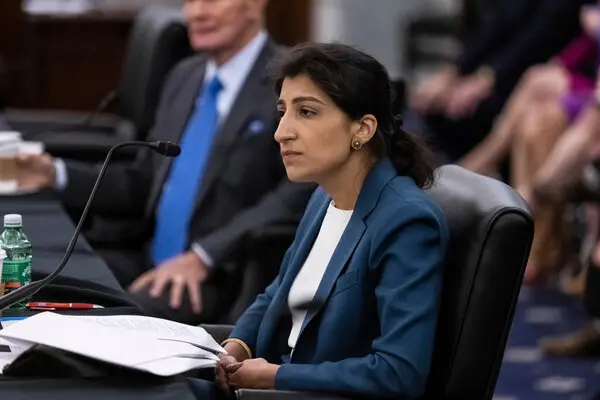Lina Khan, a law student in 2017, gained attention with an article advocating for a reimagining of US antitrust law, focusing on Amazon.com. Today, as Chair of the US Federal Trade Commission (FTC), Khan is leading an investigation into Amazon’s business practices, raising questions about the company’s market dominance and competition. Here’s what you need to know about this high-profile case:
FTC’s Investigation:
The FTC and 17 states have accused Amazon of engaging in illegal conduct to stifle competition. The lawsuit alleges that Amazon compels sellers on its platform to use its logistics and delivery services in exchange for prominent placement and punishes merchants that offer lower prices on rival sites. This investigation began in 2019.
Amazon’s Response:
Amazon counters these allegations, claiming that its practices benefit customers and the online retail market. The company argues that the FTC’s case is “wrong on the facts and the law.” Amazon maintains that it competes vigorously in the retail market, both online and offline, striving to offer customers the best shopping experience, including competitive prices and a wide range of products.
Third-Party Sellers:
Amazon operates as a platform for third-party sellers, acting as both a competitor and business partner. Some independent merchants have accused Amazon of using its gatekeeper role to disadvantage competing sellers and even using proprietary consumer data to create competing products.
Market Share:
The definition of the market is crucial in this case. The FTC is expected to argue that Amazon’s marketplace is the most widely used platform for purchasing various products, and it unlawfully ties access to its marketplace with the use of its logistics service, resulting in higher prices for consumers. Amazon accounts for a significant share of online retail sales (37.6%), but a smaller portion (3.5%) of total US retail, including offline businesses.
Other FTC Cases Against Amazon:
The FTC has pursued consumer protection cases against Amazon. These include settlements related to Amazon’s Alexa-powered speakers, Ring video doorbell privacy concerns, and allegations of deceptive practices in signing up for Prime service memberships. Additionally, the FTC is investigating Amazon’s proposed acquisition of iRobot, maker of the Roomba automated vacuum cleaner.
Amazon’s Diverse Business Portfolio:
Apart from its e-commerce site, Amazon offers fulfillment services, Prime video and music streaming, and is a major player in cloud computing through Amazon Web Services (AWS). The acquisition of Whole Foods also established Amazon’s presence in the grocery industry.
Significance of the Case:
This case holds significant implications for antitrust law and the broader tech industry. President Joe Biden’s appointment of Lina Khan as FTC Chair reflects a desire to return to trust-busting practices from the early 20th century. Khan, known for her work on modern monopolies, contributed to a report that informed tech-focused antitrust bills in Congress. Amazon has called for Khan’s recusal from the FTC’s investigation, but two judges have ruled in favor of her participation.
The outcome of this case against Amazon will test the boundaries of US antitrust law, particularly in an era dominated by tech giants, and could set important precedents for future antitrust enforcement.













